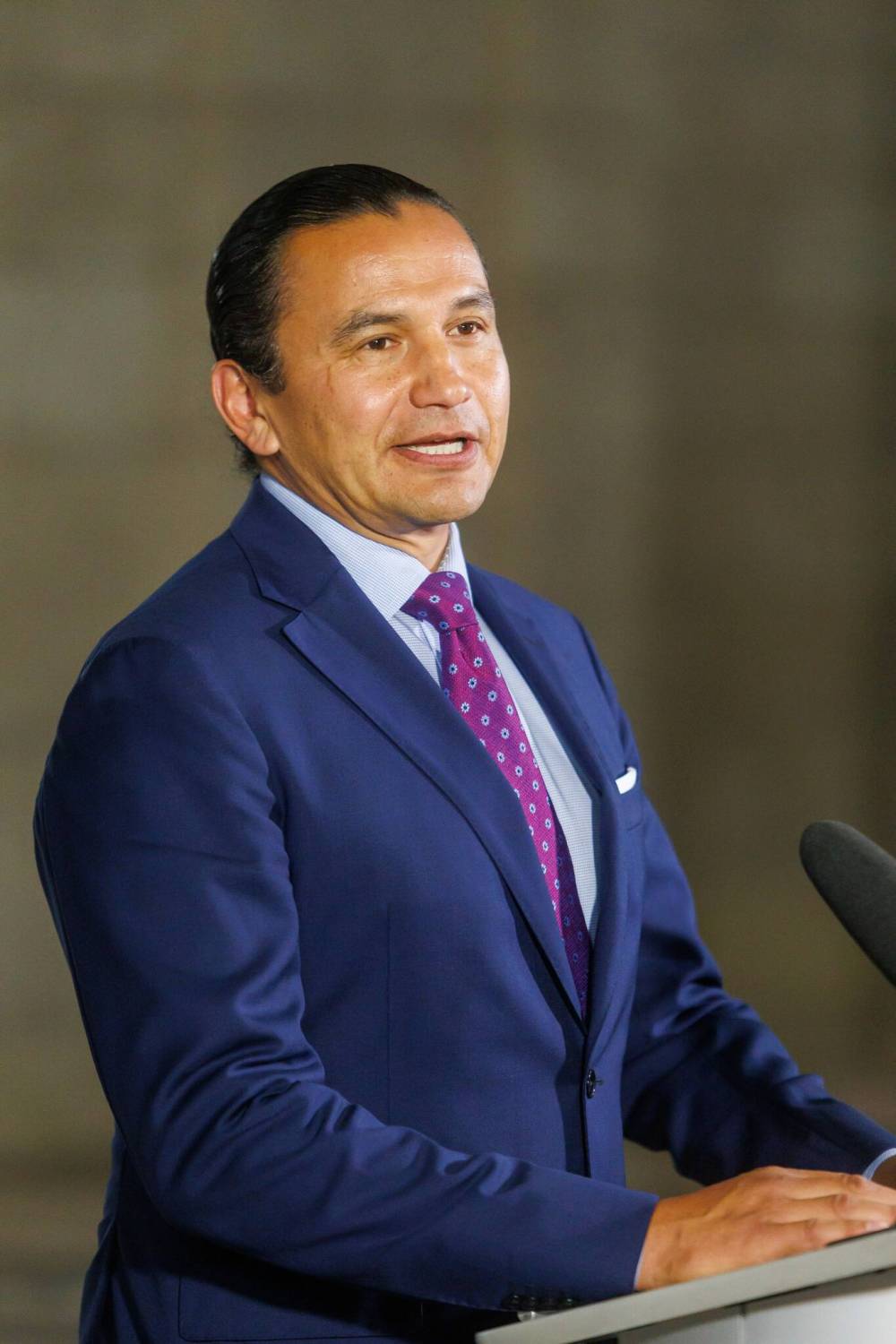Don’t expect the provincial red ink to end
Advertisement
Read this article for free:
or
Already have an account? Log in here »
To continue reading, please subscribe:
Monthly Digital Subscription
$0 for the first 4 weeks*
- Enjoy unlimited reading on winnipegfreepress.com
- Read the E-Edition, our digital replica newspaper
- Access News Break, our award-winning app
- Play interactive puzzles
*No charge for 4 weeks then price increases to the regular rate of $19.00 plus GST every four weeks. Offer available to new and qualified returning subscribers only. Cancel any time.
Monthly Digital Subscription
$4.75/week*
- Enjoy unlimited reading on winnipegfreepress.com
- Read the E-Edition, our digital replica newspaper
- Access News Break, our award-winning app
- Play interactive puzzles
*Billed as $19 plus GST every four weeks. Cancel any time.
To continue reading, please subscribe:
Add Free Press access to your Brandon Sun subscription for only an additional
$1 for the first 4 weeks*
*Your next subscription payment will increase by $1.00 and you will be charged $16.99 plus GST for four weeks. After four weeks, your payment will increase to $23.99 plus GST every four weeks.
Read unlimited articles for free today:
or
Already have an account? Log in here »
Manitobans concerned about Manitoba’s fiscal health can be forgiven for feeling a bit overwhelmed over the past week. A fire hose of numbers, forecasts and commentary was unleashed on citizens, no doubt causing both concern and confusion.
Let’s start with Premier Wab Kinew and the fiscal metrics he faces as he hits the two-year anniversary of his government. In a Sept. 26 Free Press interview, the premier acknowledged that Manitoba’s fiscal status was a “mixed bag.” Within days of that statement, that mixed bag began to reveal itself.
The release of the 2024-25 public accounts — the definitive and final accounting of government finances for the year ending March 31, 2025 — showed the province’s deficit was $1.1 billion, $353-million higher than forecast. This was surprising, because Manitoba received an unexpected $421-million windfall from a settlement with tobacco companies. Slower than expected economic growth, and higher than expected costs from fighting wildfires, erased the windfall and then some.

MIKE DEAL / FREE PRESS
Premier Wab Kinew
An accompanying update for the current fiscal year showed the deficit improving, but only slightly. Next March, the Kinew government is hoping to bring the deficit down to $890 million, considerably less than it was at the end of the last fiscal year but still worse than it forecast in the budget presented this past spring.
These reports raise the possibility the NDP government will not keep its promise to balance the books by the next election, which must be held by October 2027. That would not only be bad for the province’s bottom line, but it would also put wind in the sails of an otherwise moribund Progressive Conservative party, still trying to recover from its humiliation in the 2023 general election.
Is there a chance the NDP government could still balance its balance sheet? Yes, but it’s very slim and not necessarily because of outrageous government spending.
Canada’s economy is suffering from a hail storm of economic misfortune. It starts with lingering high inflation, which increases the costs of providing government services, and goes on to include a range of issues which have reduced GDP growth and depressed government revenues: punitive tariffs imposed by the U.S.; lower immigration; conflicts in Ukraine and Gaza; and horrendous climate-change-fuelled natural disasters like floods and wildfires.
It’s important to not that no province is immune from these fiscal woes. According to RBC Economics, every province in the country save for Saskatchewan is expected to run massive deficits this year and for the foreseeable future.
Against the backdrop of all this fiscal misery, we have the premier’s recent pledge to make Manitoba a “have” province by 2040. For the uninitiated, being a “have” province means not receiving federal equalization payments.
Equalization comes from federal income taxes paid by people and companies across the country. Provinces that are rich in resources, in particular oil and gas, generate more per capita income tax than those that do not. Ottawa redistributes these tax revenues to smaller, non oil-producing provinces so that every Canadian can share in the resource bounty. Making Manitoba a “have” province is a dubious accomplishment — more political theory than fiscal reality — but the business community seems to love the ambition shown by the premier.
Before he can achieve that lofty and — some would say unrealistic — goal, Kinew will have to show Manitobans he has a strategy to balance his budget before 2027. Economic growth is expected to tick upwards next year, which is good.
But none of the other threats to economic growth are expected to disappear next year, which means revenues will be soft.
Put it all together, and it’s likely the Kinew government will still be using red ink to write its budgets for the next year and the one after that.






